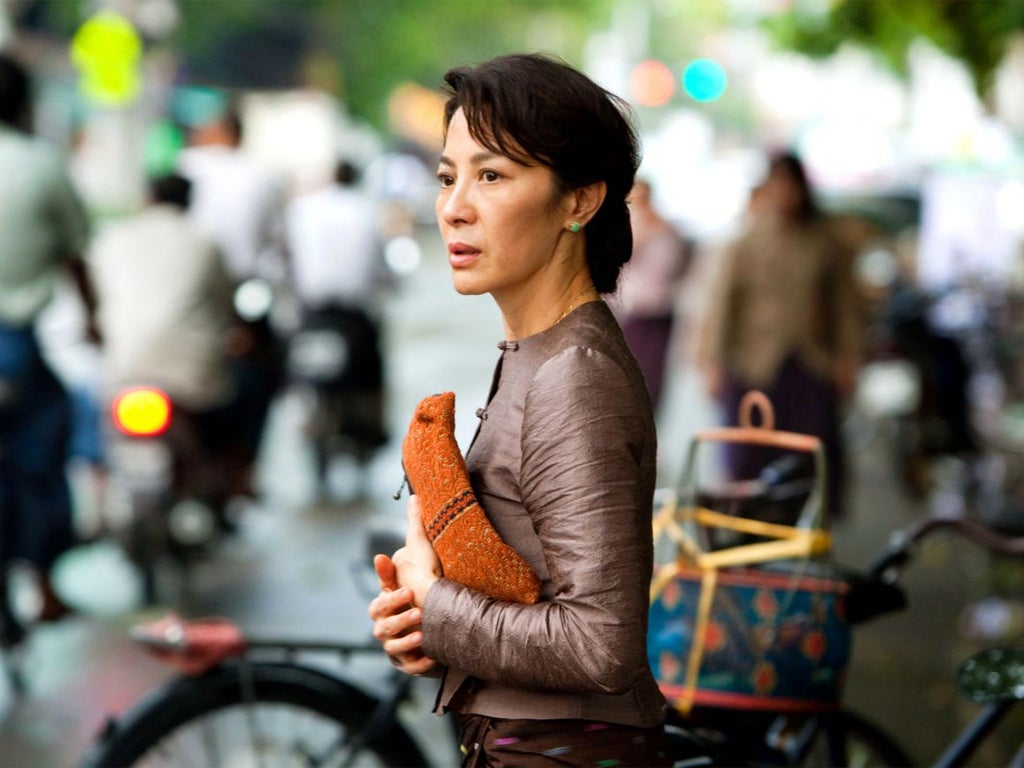
Your support helps us to tell the story
From reproductive rights to climate change to Big Tech, The Independent is on the ground when the story is developing. Whether it's investigating the financials of Elon Musk's pro-Trump PAC or producing our latest documentary, 'The A Word', which shines a light on the American women fighting for reproductive rights, we know how important it is to parse out the facts from the messaging.
At such a critical moment in US history, we need reporters on the ground. Your donation allows us to keep sending journalists to speak to both sides of the story.
The Independent is trusted by Americans across the entire political spectrum. And unlike many other quality news outlets, we choose not to lock Americans out of our reporting and analysis with paywalls. We believe quality journalism should be available to everyone, paid for by those who can afford it.
Your support makes all the difference.Luc Besson may once have been an acclaimed auteur, but in recent years he’s spent his time writing and producing half-witted celebrations of racist violence. So if you were looking for someone to direct a film about a Nobel Peace Prize-winning democracy campaigner, Besson would probably be just below Michael Winner on the list.
Nonetheless, The Lady, a biopic of Burma’s iconic Aung San Suu Kyi, does start much like any other Besson movie. It opens in Rangoon in 1947, with Suu Kyi as a young girl, frolicking happily in the sunshine with her beloved dad. After one last significant glance over his shoulder, he then goes off to a meeting where he raises a toast to Burma’s democratic future, only to be murdered in a hail of gunfire two seconds later. In most Besson films, that would be Suu Kyi’s cue to go into hiding, and to emerge 20 years later as a sexy, knife-throwing assassin, but even though she’s played as an adult by Michelle Yeoh, a former Bond girl and Jackie Chan sidekick, that doesn’t quite happen. Indeed, there’s a surprising lack of scenes in which she stabs someone with a hairpin and then throws them through a window in slow-motion.
Instead, Suu Kyi’s story picks up in 1988, when she’s the housewife of a tweedy Oxford don, Michael Aris (David Thewlis). She doesn’t have any political ambitions, but as the daughter of Aung San, who negotiated Burma’s independence, she has great symbolic value, so when the junta sets about massacring student protesters, she consents to put herself forward as an opposition leader. Her initially successful campaign leads to her being confined to her family home in Rangoon, a house arrest which would last, with brief breaks, from 1989 to 2010.
Besson presents all this in the reverential, blandly informative style of a daytime TV movie, flooding every scene with muzak, and never showing Suu Kyi to be anything other than a saintly model of elegance and dignity. If she has any doubts about the choices she’s made, Rebecca Frayn’s script dismisses them in a sentence or two. If she has any gifts as a strategist or an orator, we don’t see them. And if she holds any political views, beyond the notion that oppression is a bad thing, we don’t hear them. Suu Kyi is serenity incarnate, while her opponents are insanely superstitious tinpot generals who shoot their own lieutenants whenever the mood takes them. Ironically enough, when a biopic is this superficial and hagiographic, it’s usually a propaganda film sponsored by a fascist dictator.
In fact, Besson’s film is more about the Gentleman than the Lady. Suu Kyi seems to pass most of her internment playing Pachelbel’s Canon on the piano, but her husband is much busier back in Oxford, raising their two teenage sons, pushing for her to be acknowledged by the Nobel committee, and soldiering on even after he’s diagnosed with terminal cancer. Thewlis paints a lovely portrait of courage and English reserve, and Aris’s selfless devotion to his wife does translate into a few moving minutes towards the end. But Yeoh and Thewlis have so few scenes together, and register so little emotion during those scenes, that the enforced separation never seems too painful. Besson and Frayn have turned the struggles of a Nobel Prize Winner into a romantic tragedy of soulmates divided, but even on that level The Lady is too measured to bother the tear ducts. I must confess, I was sort-of hoping that Jason Statham would turn up with an assault rifle, as he so often does when Besson is around.
NEXT WEEK: Nicholas Barber sees Mother And Child, written and directed by Rodrigo Garcia, the child of Gabriel Garcia Marquez.
Join our commenting forum
Join thought-provoking conversations, follow other Independent readers and see their replies
Comments